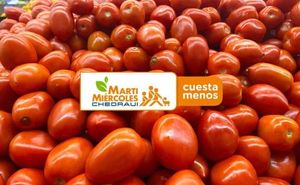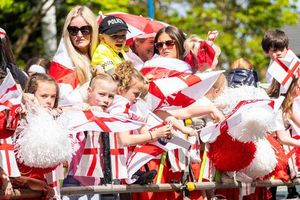The Islamic community prepares for the 2025 Islamic New Year and Eid al-Adha, two significant dates observed with much fervor and tradition. The Islamic New Year, or Hijri New Year, which marks the beginning of the Islamic lunar calendar, will commence on July 7, 2025. This date ushers in reflection and renewed spirituality among Muslims worldwide.
Eid al-Adha, known as the "Festival of Sacrifice," will be celebrated from the evening of June 16 and will last until June 17, 2025. This festival holds great importance as it commemorates the willingness of Prophet Ibrahim (Abraham) to sacrifice his son as an act of obedience to God. For Muslims, Eid al-Adha is not just about sacrifice; it is also about community, family, and enriching one’s faith through charitable acts.
According to Islamic tradition, during Eid al-Adha, families will gather for prayer, enjoy festive meals, and, where possible, participate in the ritual of Qurbani, or animal sacrifice, where the meat from slaughtered animals is shared with family, friends, and those less fortunate. This marks the essence of Islam—a religion deeply rooted in charity and compassion.
The practices surrounding Eid are rooted deeply within Islamic teachings. The importance of communal prayers on the morning of Eid cannot be understated, as it sets the tone for the day filled with gratitude and joy. Many families also embrace the tradition of wearing new clothes, symbolizing renewal and celebration. Such traditions not only reflect faith but also reinforce familial bonds.
Preparation for Eid begins long before the actual day, as many families start to save money and plan for the festive meals they will share. Traditionally, dishes like biryani, kebabs, and various desserts are made, reflecting the diverse culinary heritage of the Islamic world.
During Ramadan, which precedes these festivals, Muslims dedicate themselves to fasting, reflecting on their habits, prayers, and acts of kindness—priming the community for the jubilation and gratitude of Eid al-Adha. This sense of anticipation builds as families prepare homes and hearts alike for the new beginnings and celebrations.
Another integral aspect of these festivities is the focus on helping the less fortunate. Charitable acts during this time are emphasized, and many families distribute Zakat al-Fitr, which is obligatory charity provided before the celebration of Eid. This ensures everyone, including the less fortunate, can partake in the festivities.
Community gatherings and public celebrations mark the occasion, becoming sacred spaces for Muslims to express their devotion, share joy, and embody the teachings of the Quran, reinforcing the pillars of brotherhood and compassion.
Across different regions of the world, the style and scale of the celebrations may vary. From street fairs to communal prayers at mosques, the display of faith and community stands firm. For many Muslims, participating in these events reinforces their connection with their culture and heritage, as they uphold traditions through generations.
Preparing for Eid al-Adha also evokes a deep sense of gratitude. Many offer special prayers of thanks, acknowledging the blessings received throughout the year. This reflective moment allows families to come together and express their love and appreciation, creating lasting memories.
The Islamic New Year and Eid al-Adha serve not only as sacred observances but also as moments of cultural identity, personal growth, and communal unity. For Muslims, each celebration brings the opportunity to redefine commitments to faith, family, and the community.
2025 will see Muslims globally marking these dates with sacred rituals, heartfelt prayers, and communal gatherings filled with joy and gratitude. The celebrations will resonate with the teachings of their faith, reiterate the importance of charity and compassion, and embody the Islamic values of community and spirituality. Together, these celebrations are set to inspire reflection and jubilance within and beyond the Islamic community.



